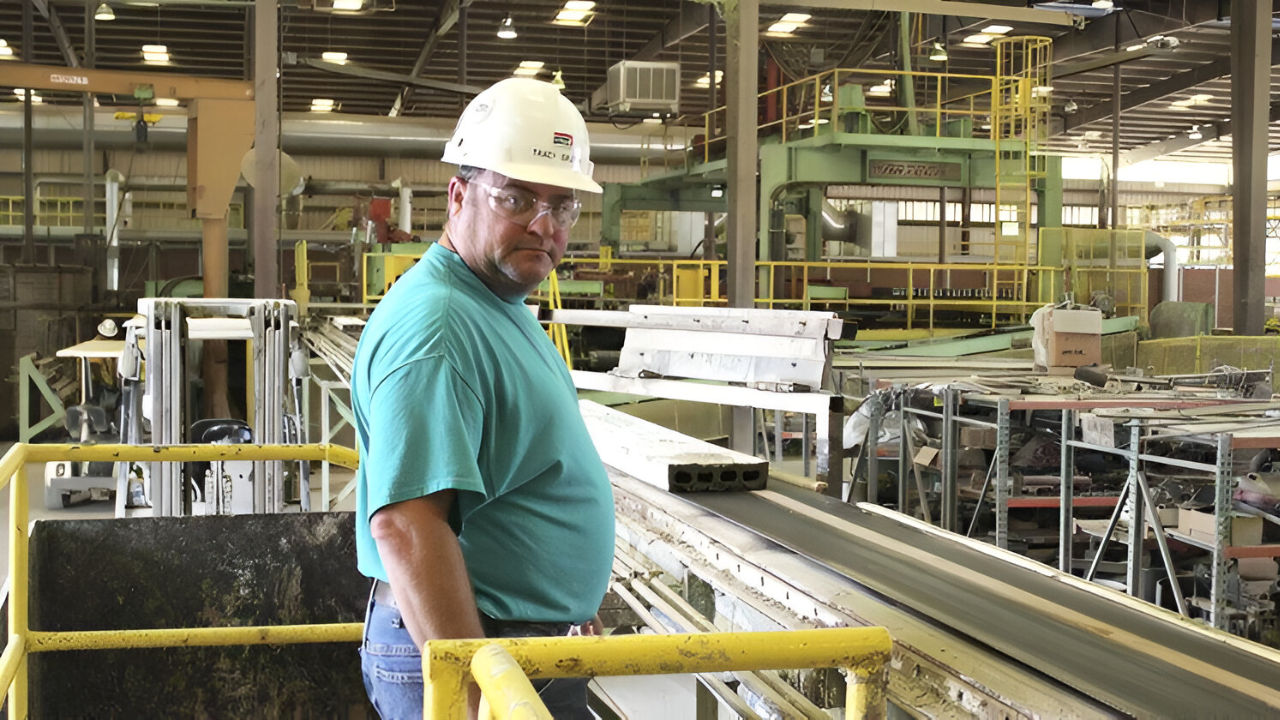
Mackeys Ferry Sawmill in Roper, North Carolina, once the largest private employer in Washington County, ceased operations on July 21, 2025, marking the end of a family legacy spanning nearly 140 years.
Wilson Jones III, the sixth-generation lumberman and owner, made the agonizing decision to shut down the mill after President Donald Trump’s tariff policies decimated export markets. All 50 workers at the facility were laid off, with only a dozen accepting positions at Jones’s sister mill located 60 miles away in Elizabeth City.
Five Generations of Heritage Lost

The Jones family entered the lumber business in 1884 when William Sawyer Jones received his first order for sawn lumber on July 26 of that year. The business expanded through multiple generations, with Wilson’s father taking over the Elizabeth City operation in 1960.
Wilson and his brother Stephen inherited a sixth-generation legacy in the late 1980s, establishing Mackeys Ferry in 1987 through a series of equipment acquisitions at auction.
Export Pivot Transforms Mill Operations
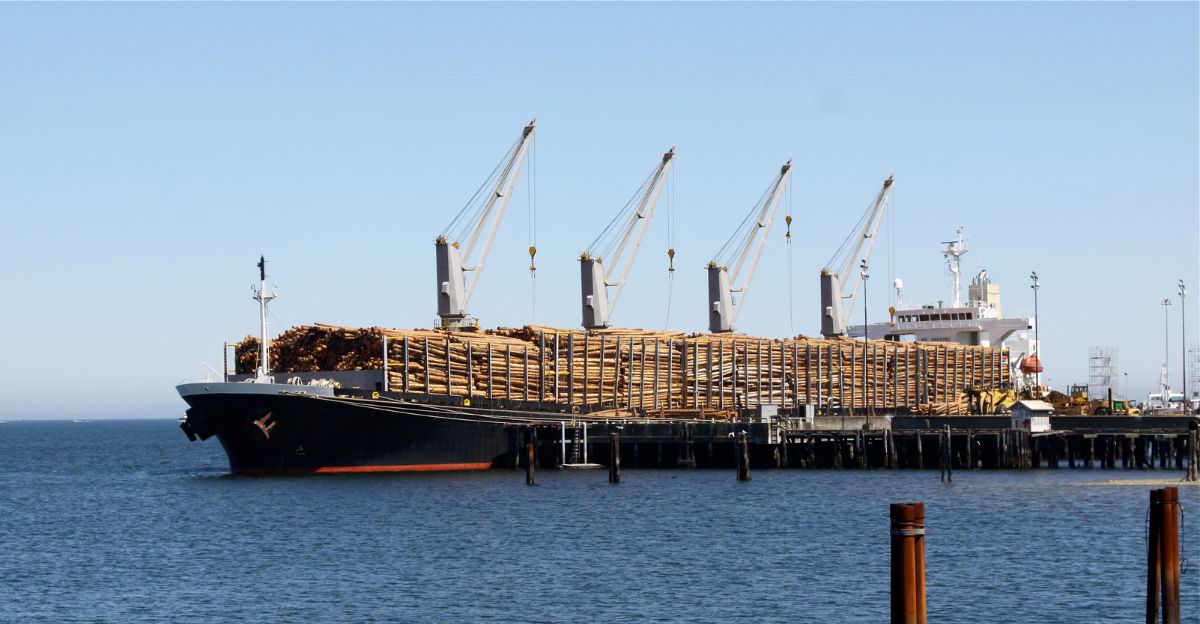
As domestic furniture manufacturing gradually moved overseas during the 1990s and 2000s, the brothers adapted their business model by focusing on premium hardwood exports.
By the time Liberation Day arrived, approximately 80 percent of Mackeys Ferry’s production was exported to Asia, primarily to manufacturing hubs in Shanghai, China, and various locations throughout Vietnam.
Liberation Day Brings Catastrophic Tariffs
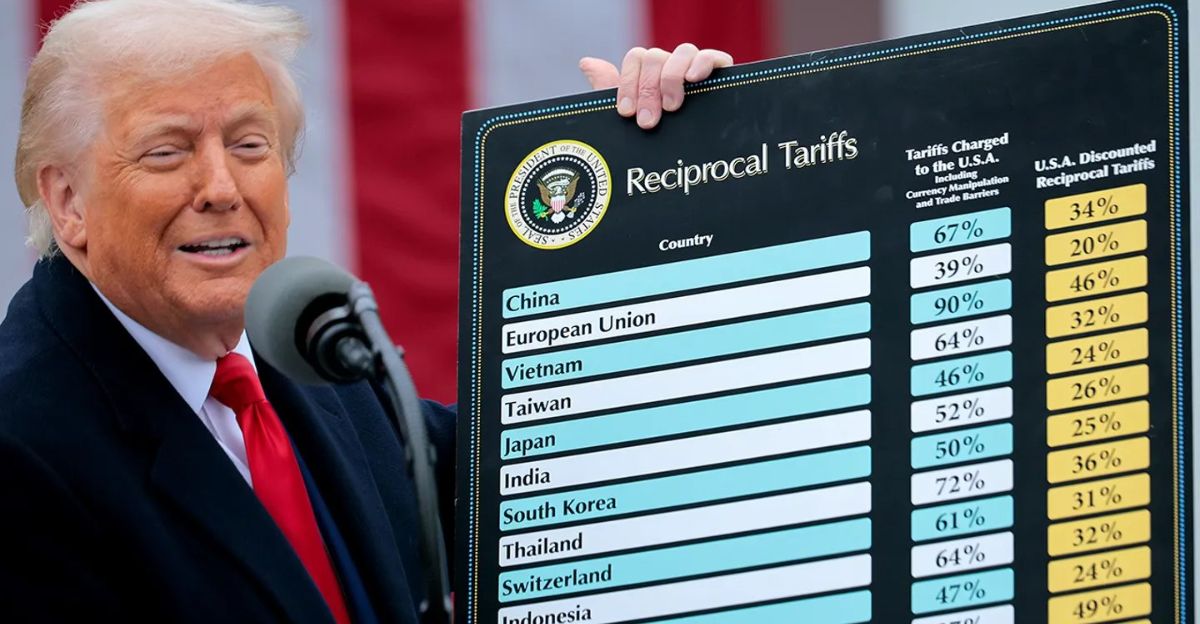
On April 2, 2025, President Trump announced sweeping “Liberation Day” tariffs in a White House Rose Garden ceremony, calling it a watershed moment for American trade policy.
The executive order established a baseline 10% tariff on imports from all countries, with country-specific rates ranging from 11% to 50%. Trump administration officials invoked the International Emergency Economic Powers Act, declaring a national emergency over the United States’ trade deficit.
China Retaliates With Devastating Hardwood Tariffs

China’s government responded swiftly to Trump’s tariffs by imposing a 120% retaliatory tariff on American hardwood products. This punishing rate effectively eliminated the primary export market for premium American lumber, such as that produced by Mackeys Ferry.
At the time of Liberation Day’s announcement, approximately $350,000 to $400,000 worth of Mackeys Ferry lumber was already in transit to China. Reimporting the cargo was economically impossible, as reverse freight from China cost eight times more than initial shipments to Asia.
Attempted Rerouting Through Vietnam Fails

Facing the China tariff disaster, Jones attempted to redirect his lumber through Vietnam, where tariff rates were initially lower. He found Vietnamese buyers willing to accept his shipments, but Vietnam’s market traditionally demands lower-quality lumber than the premium-grade hardwood destined for Chinese manufacturers.
Jones was forced to accept substantial price concessions, ultimately taking a 40% loss on the rerouted shipment.
Additional Wood Tariffs Delivered in September

In September 2025, Trump announced additional tariffs specifically targeting wood products and furniture through a presidential proclamation. The new duties imposed a 10% tariff on softwood timber and lumber, a 25% tariff on upholstered wooden furniture, and a 25% tariff on kitchen cabinets and vanities.
These rates were scheduled to rise to 30% and 50% respectively, on January 1, 2026, unless countries reached new trade agreements with the United States.
Inventory Crisis Emerges
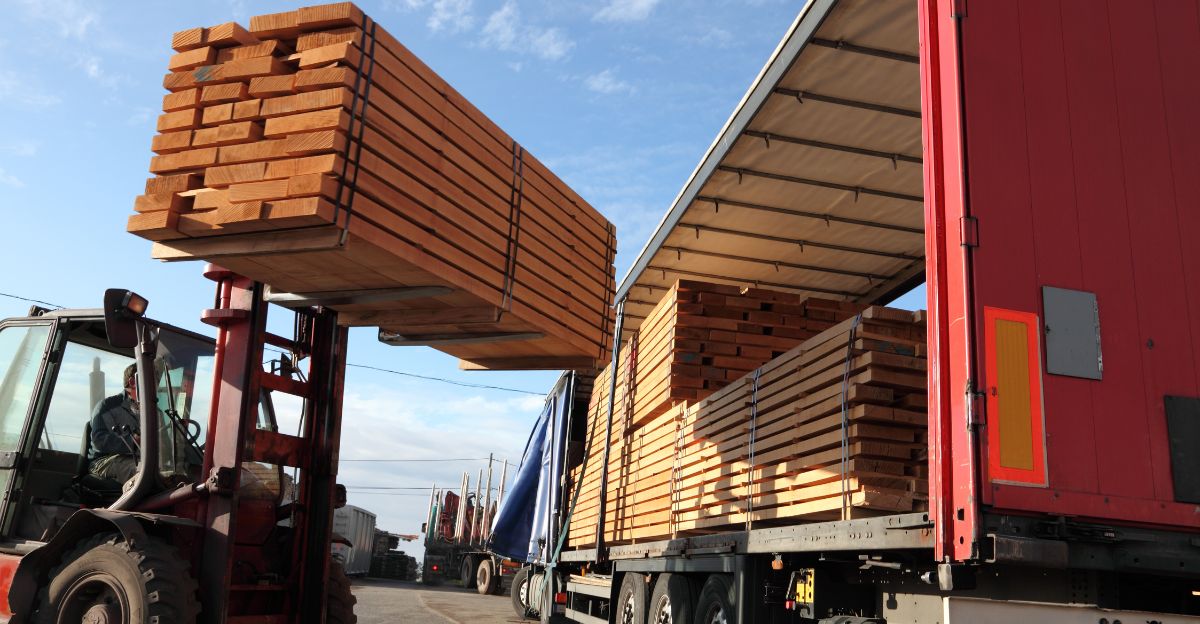
The September wood tariffs created an impossible inventory situation for Jones. He now possesses 15 to 20 truckloads of premium hardwood lumber, designated for Asian customers in the furniture and cabinetry manufacturing industries. These shipments became unsellable overnight due to the new tariff structure, making imported materials economically unviable for overseas furniture manufacturers.
Jones’s Chinese contacts and largest suppliers reported difficulty identifying alternative sources for the specific thickness and quality of lumber that Mackeys Ferry had supplied, indicating a genuine market gap left by the closure.
Longtime Employees Face Uncertain Future

Of the 50 workers laid off when Mackeys Ferry closed, more than 40 had been employed at the mill for at least 10 years, with one maintenance foreman having worked since the mill’s initial startup.
Jones personally operated the final board cut through the sawmill with his longtime foreman on July 21, 2025, marking the culmination of nearly 40 years of operations. When offered positions at the Elizabeth City mill, only about a dozen workers accepted, as the 60-mile commute proved impractical for most residents of rural Washington County, who had limited employment alternatives.
Business Economics Becomes Impossible

Jones articulated the fundamental economic reality facing his operation in conversations with journalists. When raw material costs simultaneously rose 30% and revenues declined 30% to 40%, the mathematics became impossible to navigate.
Supporters of tariffs argue that businesses should absorb costs without passing them on to consumers, but Jones noted that this expectation applies equally to small sawmills and major corporations like Procter & Gamble.
Rural County Struggles With Job Loss

Washington County, North Carolina, faces economic devastation due to the closure of Mackeys Ferry. The mill represented the largest private employer in the county, and rural areas surrounding Roper offer limited employment alternatives for displaced workers.
The immediate job loss of 50 positions reverberates through the local economy, affecting not only the workers themselves but also the surrounding businesses that depend on sawmill employment. The county’s economic infrastructure, built substantially around this single industrial facility, now confronts a significant void.
Manufacturing Jobs Nationwide Decline Under Tariffs
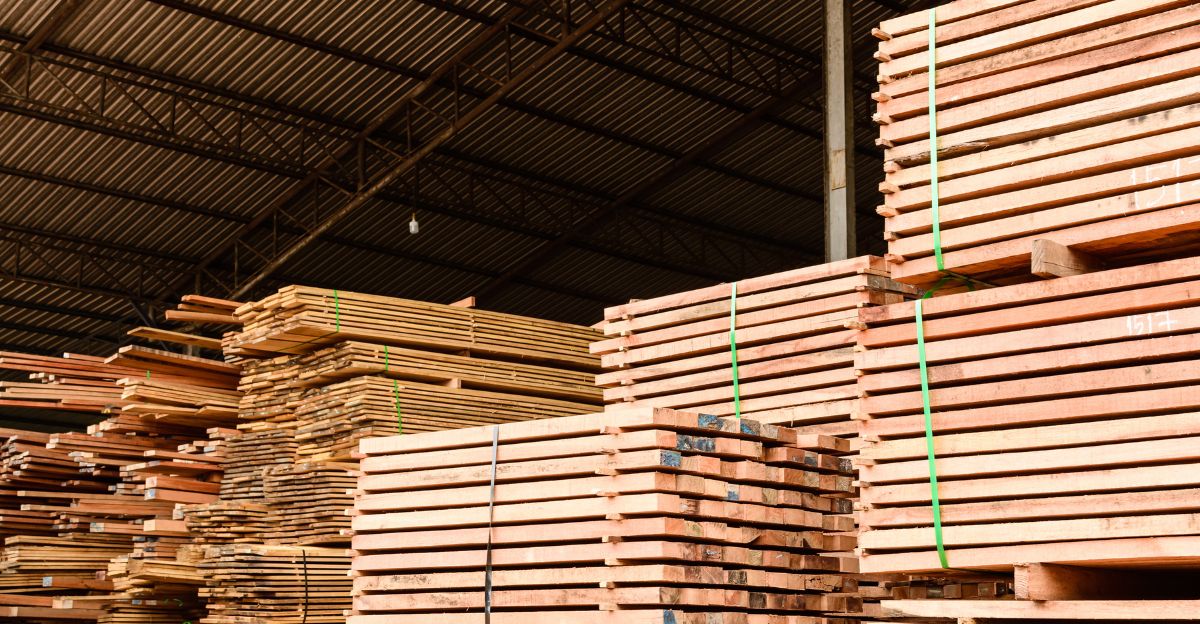
Nationally, the tariff regime has produced opposite effects from Trump’s promises of a manufacturing renaissance. The United States lost 42,000 manufacturing jobs between April and August 2025, immediately following Liberation Day’s implementation.
For the entire year 2025, manufacturing employment declined by 33,000 positions despite tariffs ostensibly designed to protect domestic producers. Manufacturing employment fell for four consecutive months, with the sector losing 78,000 jobs compared to the previous year, contradicting predictions that tariffs would stimulate industrial hiring.
Sawmill Industry Devastation Spreads Across North America

The closure of Mackeys Ferry represents part of a broader collapse in the North American sawmill sector. In Quebec, Domtar announced the closure of two sawmills in Rivière-aux-Rats and Maniwaki before Christmas 2024, eliminating over 500 positions.
Wisconsin lumber producers reported plummeting demand and prices, with several mills forced to cease operations. Michigan State University research found that sawmill closures trigger two-thirds of job losses outside the mills themselves, affecting logging operations, transportation services, wholesale trade, and real estate sectors across rural communities.
Economic Multiplier Effect Threatens Communities

Research documents the cascading economic damage extending far beyond direct mill employment. When a sawmill closes, supply chain disruptions affect logging companies, transportation firms, equipment suppliers, and real estate markets.
Michigan’s sawmill sector lost 273 jobs between 2019 and 2023, but the overall economic impact generated approximately 820 additional job losses across related industries and caused $211.55 million in output decline.
Wilson Jones Questions Tariff Policy Effectiveness

Despite his business destruction, Jones remains politically aligned with Trump, stating he would vote for the president again if given the same choice between Trump and Democratic candidate Kamala Harris.
However, Jones expressed significant regret about trade policy, acknowledging: “There are some things I regret about voting for President Trump? Yes, 100%. Trade policy is one of them. I wish it hadn’t turned out that way.” He appealed directly to Trump, requesting the president visit his mill location and reconsider blanket tariff policies implemented without consideration for specific industries.
Plea for Direct Presidential Engagement
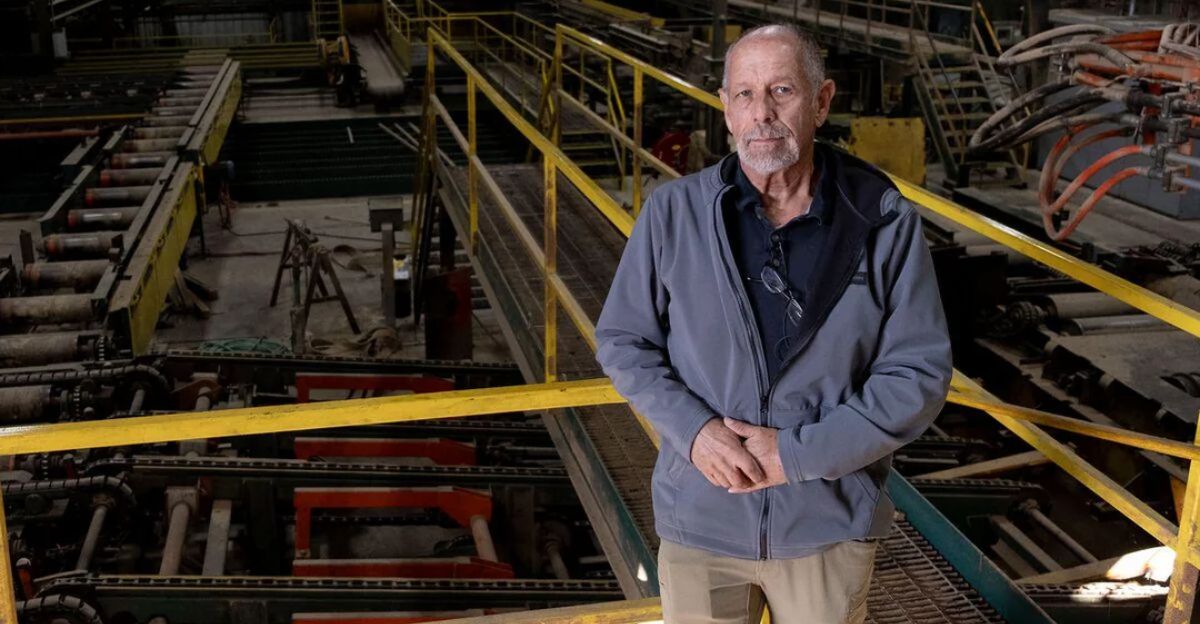
Jones referenced Trump’s visit to western North Carolina following Hurricane Helene, noting that the president’s direct observation appeared genuine and compassionate. He urged Trump to apply similar engagement to industrial communities harmed by tariffs: “Come down here and look, and don’t just make blanket edicts because that’s the edict of the day.”
This request highlights the disconnect between tariff architects in Washington and affected business owners in rural America who experience immediate, devastating consequences of trade policy decisions.
Broader Economic Questions Emerge

The Mackeys Ferry closure raises fundamental questions about the political and economic trajectory of rural America. Despite personally experiencing catastrophic business failure directly attributable to Trump’s tariff policies, Jones and many rural voters continue supporting Trump over alternative candidates.
This apparent paradox—prioritizing political identity over immediate economic self-interest—reflects complex dynamics within rural communities where cultural values and political alignment sometimes supersede economic rationality in voting decisions.
Future Uncertainty for Rural Manufacturing
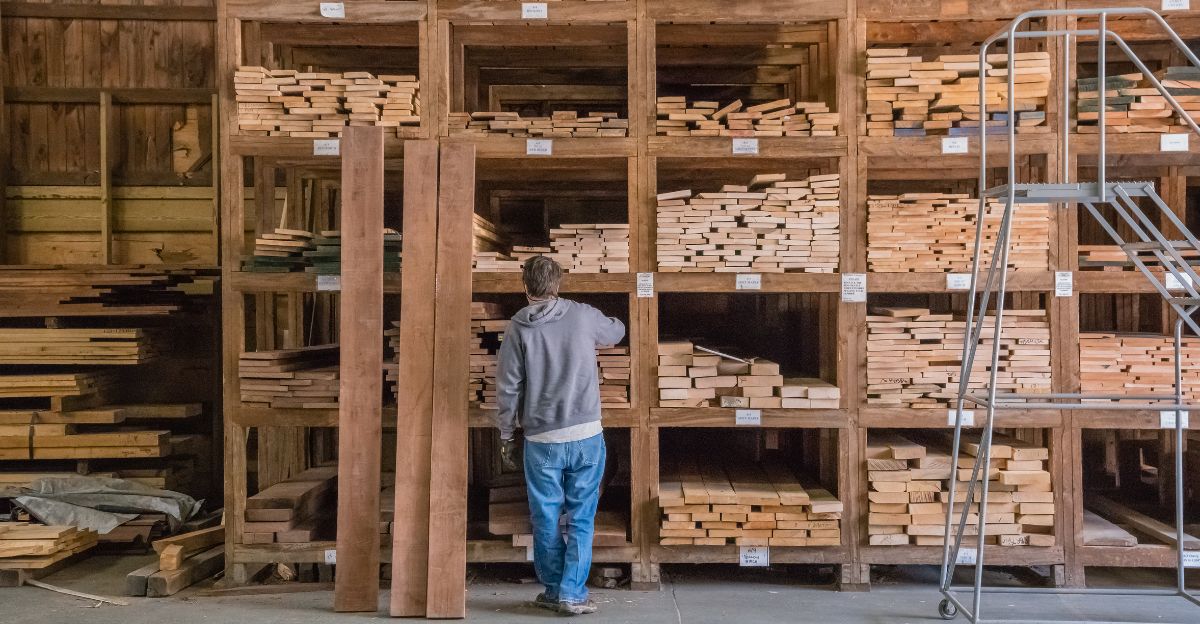
The lumber industry has requested inclusion in government relief packages promised to farmers and other sectors impacted by tariffs, but the Trump administration has not responded favorably to these requests. Without government assistance, rural lumber producers face ongoing challenges to their viability.
As Mackeys Ferry’s story demonstrates, tariff-based industrial policy has created devastating consequences for family businesses that invested decades building specialized export capabilities, only to face sudden market elimination through executive tariff orders.